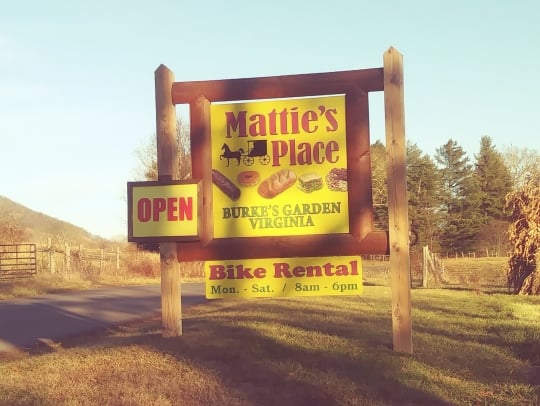Amish, Drilling Companies and the Law
From the New Republic, on Amish signing leases with energy companies:
Miller is physically imposing—stout and broad-shouldered—but also painfully timid. When pressed on what his neighbors had earned, he gazed for a long time at Edna, who, with one of their daughters, was chalking the outline of a man’s pantleg onto a bolt of wool rolled out on the table. “My wife and I took turns kicking each other in the butt.” He paused for a long while. “Our ten dollars an acre compared to $1,000.”
Indeed, many area farms had leased for thousands. Even by a conservative calculation, the couple said they had missed out on a $79,000 signing bonus. (Kenoil declined to comment). Several times, they have felt the sting of their mistake, as during last year’s drought, when a decimated corn crop forced them to buy extra feed for the milking cows, costing thousands of dollars. The Millers have also tried to undo their misstep. Around the beginning of 2011, Lloyd presented his lease and his story to a lawyer, who said that by telling the Millers that $10 an acre represented the best deal available to them, the agent had committed fraud. He told Miller he could take Kenoil to court. “But I said, ‘Hey, that’s something we don’t do,’” Miller said. “He’s got to live with his conscience.”
This story on Amish dealings with energy companies has been out for around a week now, but if you haven’t read it, it is an interesting look at the issues involved. The article draws attention to the idea that Amish traditionally do not sue, which I wonder how many people don’t realize (I suspect a good chunk of the public does not).
It also points out cases in which Amish were in fact involved with lawsuits, and describes some of the ways they do involve themselves with the legal side while stopping short of full-fledged suits (such as affidavits and declaratory judgments). There is also this important bit:
Not that every Amish farmer is looking for a payday. Dale Arnold, the director of energy policy for the Ohio Farm Bureau and a Holmes County native, notes that some Amish lease their land for less than the market value on purpose, with many Amish believing that a windfall will cause their children to leave the faith. “They see their futures at stake,” he said. “So their bishop will say, yeah, you can get a lease. But your settlement is going to be smaller than what your English neighbors are settling on, and it’s going to be in this range.”
There is more than a little caveat venditor to the Millers’ story. But going by this article, it also seems some unscrupulous and even potentially illegal practices have been perpetrated by those seeking to get Amish landowners to part with their energy rights.








Is it just about the bottom line?
The point of the New Republic article and this post seems to be that Amish farmers are getting cheated out of the profits they could be making on petrochemical leases if they were only willing to go to court. But what about the ethics of leasing to companies to expand fracking, which is, at best, environmentally risky? Ironically, these landowners are not only letting big companies endanger their land and water; they’re making it cheaper for them.
Multi-faceted issue
The aspect you bring up is definitely a part of the discussion. But I found this piece more interesting for how it fleshed out how Amish (or at least Amish of a certain persuasion) navigate the legal arena with regards to the hot energy topic, which I haven’t seen much coverage of anywhere else.
The story sort of goes from the assumption that some Amish haven’t gotten market value for their rights and that is a bad thing.
There wasn’t as much discussion either of the question of whether an energy windfall was a positive to begin with for Amish (in a communal or spiritual sense), though it was covered briefly in the paragraph I excerpted above.
It is an interesting irony you point out…though in the last post I did on this it seemed interest in the Holmes area at least has diminished (for the time being)? Any local knowledge appreciated. https://amishamerica.com/fracking-fades-in-amish-ohio/
I hear absolutely no talk about leasing around here (New Bedford, Holmes/Coshocton) which may seem sort of funny since I sent you the link. From what I gather, there was a rush a couple of years ago in hopes of big money from the shale reserves, but the reality seems to be that Holmes County sits too far to the west edge of the fields to be the best drilling option at the moment.
Down in Guernsey County (Quaker City), a friend of mine got $500,000 up front for their 100 acre farm, plus will get a % when the well starts producing (drilling now). Not bad for a chunk of land that 15 years ago would have probably sold for $150,000. 🙂 Another man that had 400 acres over in the panhandle of WV is rolling in $6000/day. He told a friend of mine that he thinks he will become a millionaire. :-0
Yeah, beware of the article’s anti-fracking talk. I havent bought the talk. I lived 200 yards from a [shallow] well being fracked and survived just fine. 🙂
Grain of salt
Thanks Mike for that info. That’s about what I heard in February, I think the operative phrase may be “at the moment”…easier sources elsewhere right now.
The bad or potentially bad sides seem pretty well-covered in the media. It’s interesting to hear from someone who experienced fracking firsthand and found it a neutral or positive experience. Since it’s such a hot issue I try to read everything (perspectives from both sides of the argument, pro and anti) with a grain of salt.
I am curious how the influx of wealth will affect people’s lives long-term.
The money will harm them more than the fracking.